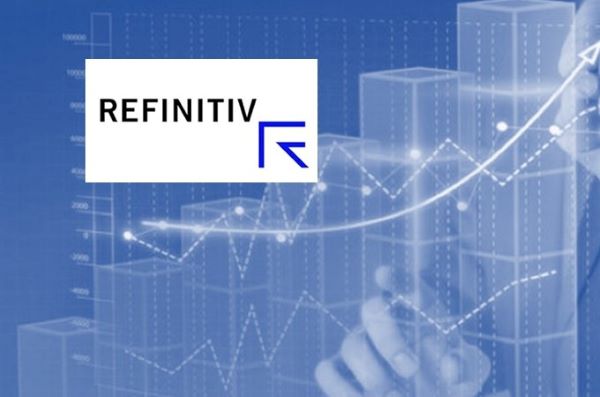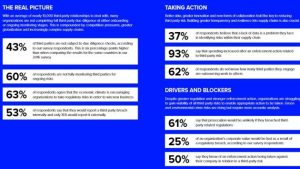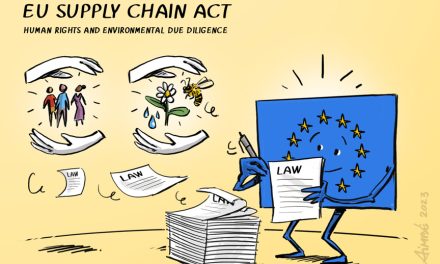Our member Refinitiv has issued a report on the hidden threats within third party relationships. For our industry, as providers of critical information, one item sticks out: “37% of the repondents believe that a lack of data is a problem they face in identifying risks in their supply chain.”
The survey highlights how, in an increasingly interconnected and globalized world, many third-party risks are going undetected.
 Phil Cotter, Managing Director, Risk Business at Refinitiv comments:
Phil Cotter, Managing Director, Risk Business at Refinitiv comments:
In recent years Refinitiv has carried out independent surveys looking at the true cost of financial crime, revealing its impact on companies, governments, society and the environment. More recently we have examined how innovation in data and technology can help to identify and disrupt criminal activity.
This year we focus on the critical area of third-party relationships, revealing the hidden risks in supplier, distributor and partner relationships.
This is a timely report, with the COVID-19 pandemic applying huge stress to global supply chains and allowing criminals to exploit the pandemic to defraud companies and government agencies. It also corresponds with the recent announcement by European Commissioner for Justice, Didier Reynders, of the EU’s commitment to introduce rules for mandatory corporate environmental and human rights due diligence.
Against this background, organizations face greater regulation and stricter enforcement actions. In 2019 companies received penalties totaling a record US$2.9 billion under the US Foreign Corrupt Practices Act (FCPA), with several officers and directors of those companies being found individually liable for breaches.
It is clear from our report that many companies today are not doing enough to protect themselves against the risk of involvement in criminal activity and resulting regulatory enforcement, with the survey revealing that 43% of third-party relationships are not subject to any form of due diligence. With an increasing focus from regulators on sanctions, corruption, sustainability and human rights, companies clearly need to upgrade their risk management procedures and capabilities. But how can they rise to this challenge? What is stopping them and what can be done to support them?
Our in-depth analysis seeks to find answers. With respondents citing a lack of data as the biggest challenge in identifying supply chain risk, Refinitiv has a central role in providing the trusted data and innovative technology to assist organizations with the effective and efficient management of third-party risk.
We also conducted and include interviews with leading NGOs (RUSI, Ethical Systems, United for Wildlife) and INTERPOL to examine the wider economic, social and human impact.Finally, we identify ways in which business, governments and Refinitiv are working together to help organizations to better identify and manage third-party risk.
Join the conversation #FightFinancialCrime
This report is based on research commissioned by Refinitiv that was conducted online by an independent consulting company in February 2020. Nearly 1,800 global third-party relationship, risk management and compliance professionals in corporate organizations completed the survey. This research was conducted across 16 countries, but the survey respondents’ headquarters and third-party relationships are truly global. Weighting was applied to each country to ensure equal representation. Please note that the standard convention for rounding has been applied, and consequently some totals do not add up to 100%.
Within this report, we also refer to the results of an additional Refinitiv survey that was conducted in February 2020. This separate survey gathered the opinions of 250 global institutional investors representing a total of over US$10 trillion of assets under management.
To download this report, please click here



























